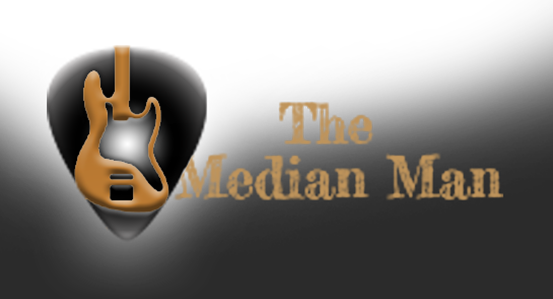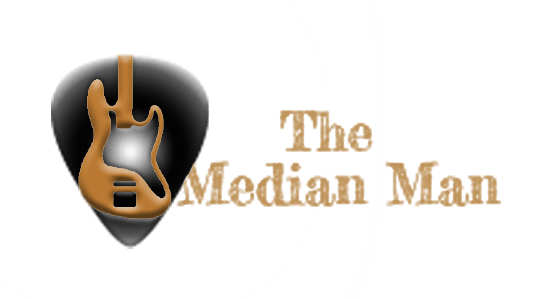What inspired the name of the band? What are your influences?
The name santipreecha comes from the merging of the latter part of my first name and
that of one of my uncles on my mother’s side who died in infancy. Together they form
the phrase ‘the ability to be at peace’, which carries a lot of personal significance. It is
also an important aspect for me as my solo work under this name has a lot to do with
coming to terms with the past, personally and culturally, and also the inquiry of how
our memories and dreams structure our internal lives and weaves together our
understanding of identity. Again this applies personally and culturally.
I’m influenced by a lot of different things, all forms of Art, psychology, philosophy,
history. Ultimately isn’t this all an investigation of ‘being’ in different forms? More
specific to music, I am influenced and driven by the constant questioning of Time, our
experience of it, and music’s need to exist in linear time. Naturally this has many
implications on the artform and its capabilities that differentiate it from for example a
sculpture which deals very differently with Time.
How do you approach songwriting? Are there any themes that you are keen to explore when you start off?
A key theme I return to is memory and dreams and how they shape us. Music, and I
mean instrumental music (music which combines instrumentals and language, a.k.a.
lyrics, are incredible but works in a slightly different form and function due to the
merging of music and literature), due in large part to its ephemeral nature (though even
that has changed to a degree since the recorded medium), seems to me to be a
particularly internal form. You play a note and then it’s gone and lives on only in your
memory. The comprehension of a musical phrase and larger form arises from how it
ties itself together in memory and I find it fascinating to explore how this
comprehension has grown and changed over time but also how some aspects don’t
seem to. Why do we seem to universally react a certain way to a major chord versus
something that feels atonal? Are these reactions innate or culturally defined? Or
somewhere in between?
The artist Louise Bourgeois said two things about art that remain some of the most
powerful and elegant explanations of art to me: “Art is not about art. Art is about life,
and that sums it up,” and “The subject of the artist is emotions and ideas, both.” I think
that most succinctly defines my approach to creating music; half of it comes from
consciously questioning and thinking, and the other half is instinctual, subterranean. I
tend to leave analytical thoughts at the door when I’m initially starting a piece. Those
thoughts and questions are always there but not necessarily in the forefront especially
at the beginning. Over time I’ve learnt to trust these instincts more and learn when to
‘edit’ and when not to. I think that is an important part of one’s technique that one
develops over time.
How do you approach songwriting? Are there any themes that you are keen to explore when you start off?
A key theme I return to is memory and dreams and how they shape us. Music, and I
mean instrumental music (music which combines instrumentals and language, a.k.a.
lyrics, are incredible but works in a slightly different form and function due to the
merging of music and literature), due in large part to its ephemeral nature (though even
that has changed to a degree since the recorded medium), seems to me to be a
particularly internal form. You play a note and then it’s gone and lives on only in your
memory. The comprehension of a musical phrase and larger form arises from how it
ties itself together in memory and I find it fascinating to explore how this
comprehension has grown and changed over time but also how some aspects don’t
seem to. Why do we seem to universally react a certain way to a major chord versus
something that feels atonal? Are these reactions innate or culturally defined? Or
somewhere in between?
The artist Louise Bourgeois said two things about art that remain some of the most
powerful and elegant explanations of art to me: “Art is not about art. Art is about life,
and that sums it up,” and “The subject of the artist is emotions and ideas, both.” I think
that most succinctly defines my approach to creating music; half of it comes from
consciously questioning and thinking, and the other half is instinctual, subterranean. I
tend to leave analytical thoughts at the door when I’m initially starting a piece. Those
thoughts and questions are always there but not necessarily in the forefront especially
at the beginning. Over time I’ve learnt to trust these instincts more and learn when to
‘edit’ and when not to. I think that is an important part of one’s technique that one
develops over time.
Why do you write the sort of music that you do?
In many ways I’m still answering that question with each new piece. I write the sort of
music I do because I need to understand both myself and the world and this is the form
it takes shape in. For me art is about self-realization, both for the creator and the
audience. And self-realization isn’t simply about understanding oneself internally for
that is impossible without also understanding the world around one. Of course this is
an ongoing dialogue which constantly jumps back and forth in time and correlates the
past and the present with ideas of the future in a large multitimbral quilt that exists now
and hopefully in the flow of a piece of music.
How do you decide what songs to perform live and how do you transpose them into
that live setting?
That is something I’m still exploring and it is shifting as I’m coming to define a little
more clearly the overarching structure of what I’m trying to explore and how. I come
from a classical music background in terms of performance and haven’t really ever
performed my electronic music live. There are of course many great examples out there
of different approaches to this but I’m still exploring and trying things out. In a way I
think of studio music and live music as separate entities though they can of course be
related. A lot of how I approach music is a combination between the ‘live aspects’ of a
piece and the cut-up/post/studio aspect. It is part of that exploration of memory and
that quilt. Of course how I perform live will also depend on the setting. For example I’d
love to explore performance as part of an exhibit or a specific architectural structure
which would allow for certain approaches that may work better for that venue and the
audience than say in a club perhaps and vice versa. Performance in the end serves a
function as well so that will always be part of the question.
How do you decide what songs to perform live and how do you transpose them into
that live setting?
That is something I’m still exploring and it is shifting as I’m coming to define a little
more clearly the overarching structure of what I’m trying to explore and how. I come
from a classical music background in terms of performance and haven’t really ever
performed my electronic music live. There are of course many great examples out there
of different approaches to this but I’m still exploring and trying things out. In a way I
think of studio music and live music as separate entities though they can of course be
related. A lot of how I approach music is a combination between the ‘live aspects’ of a
piece and the cut-up/post/studio aspect. It is part of that exploration of memory and
that quilt. Of course how I perform live will also depend on the setting. For example I’d
love to explore performance as part of an exhibit or a specific architectural structure
which would allow for certain approaches that may work better for that venue and the
audience than say in a club perhaps and vice versa. Performance in the end serves a
function as well so that will always be part of the question.
What plans do you have for the future?
Apart from my second album Round a Roo coming out on February 2nd, I am working
on some new music but I’m still in the exploratory phase so I don’t have answers yet of
exactly what it’ll be. I will also be releasing an album of an original score I made for Guy
Longstreet’s film Black Jade in the coming months.

